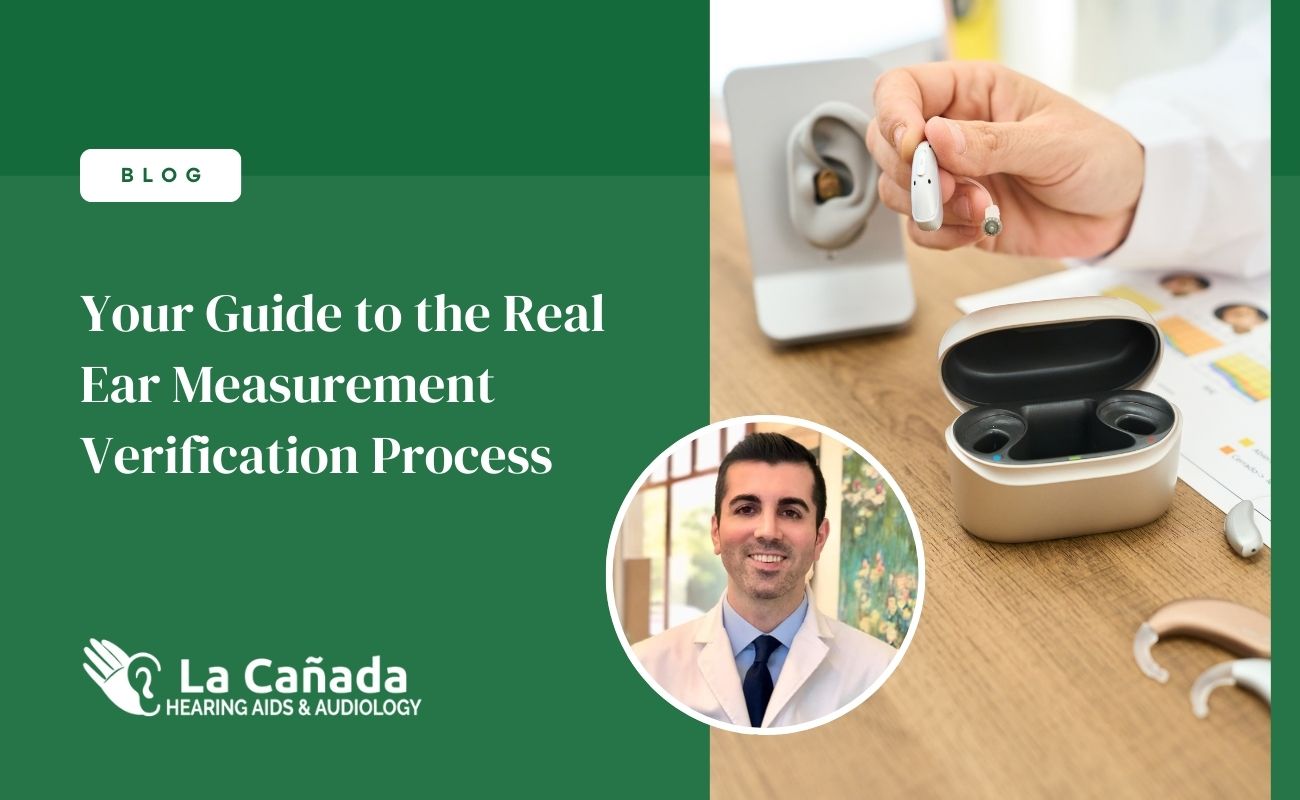At La Cañada Hearing Aids & Audiology, we recognize the challenges presented by tinnitus, a condition commonly associated with hearing loss. Approximately 80% of tinnitus cases occur alongside varying degrees of hearing impairment. While tinnitus is usually not a standalone issue, we offer advanced solutions to assist in managing this often frustrating condition.
Understanding the Tinnitus-Hearing Loss Connection
When experiencing hearing loss, your ears receive less external sound input. This reduction in incoming auditory information can trigger a complex response in your brain. In an attempt to compensate for the lack of external sound, your brain may generate its own audio perception—a phenomenon known as tinnitus. This relationship between hearing loss and tinnitus is intricate and not fully understood. However, addressing the underlying hearing impairment through appropriate interventions, such as hearing aids, can significantly reduce the prominence of tinnitus for many individuals.
It's important to note that tinnitus can also affect people with normal hearing. In these cases, various other factors can trigger or exacerbate tinnitus. These factors can include:
- Prolonged exposure to loud noises, such as working in noisy environments, attending concerts, or using personal audio devices at high volumes.
- Certain medications, including some antibiotics, antidepressants, and painkillers, can have ototoxic side effects that can damage the structures of the inner ear, leading to tinnitus.
- Stress and anxiety can contribute to tinnitus by heightening the perception of internal sounds and making it more difficult to ignore them.
- Underlying medical conditions, such as thyroid problems, allergies, and Meniere's disease, can sometimes cause tinnitus as a symptom.
- Head or neck injuries, such as whiplash or a concussion, can affect the auditory system and lead to tinnitus.
- Cardiovascular issues, such as high blood pressure and atherosclerosis, can cause tinnitus due to changes in blood flow to the ear.
Given the diverse potential causes of tinnitus, a thorough assessment by an experienced audiologist is essential for effective management and potential relief.
Tinnitus Management through the Evolution of Hearing Aid Technology
Today's hearing aids incorporate advanced features tailored to manage tinnitus effectively. These innovations complement traditional amplification, offering a comprehensive approach to address both hearing loss and tinnitus.
1. Sound Masking for Tinnitus Relief
One of the primary ways hearing aids address tinnitus is through sound masking. This feature generates soothing background sounds that help make tinnitus less noticeable throughout the day. The underlying concept is to introduce a pleasant, neutral sound that partially or completely masks the tinnitus sound, minimizing its intrusiveness.
Modern hearing aids provide a diverse range of masking sounds, including:
- White noise
- Pink noise
- Nature sounds (ocean waves, rainfall, etc.)
- Fractal tones
- Customizable soundscapes
The ability to select and adjust these sounds enables personalized tinnitus management, catering to individual preferences and the unique characteristics of each person's tinnitus.
2. Enhanced Hearing and Sound Enrichment
- Hearing aids amplify external sounds, redirecting the brain's focus from internal tinnitus to real-world noises.
- Improved access to environmental sounds significantly impacts tinnitus perception.
- Sound enrichment, a crucial aspect of tinnitus management, provides a rich and varied soundscape to the brain.
- This approach reduces the contrast between tinnitus and background sounds, stimulates the auditory system, and promotes neural plasticity for long-term tinnitus habituation.
- Advanced hearing aids enhance not only the volume but also the quality and clarity of sounds, creating a more engaging listening experience.
3. Customizable Therapy
- Modern hearing aids offer personalized sound therapies tailored to your specific tinnitus characteristics.
- Customizable options include pitch matching to align masking sounds with your tinnitus pitch, volume control for optimal comfort, and automatic adjustments using AI to learn your preferences over time.
4. Improved Communication and Reduced Stress
Tinnitus can often lead to heightened stress and anxiety, which can further intensify the perception of the condition. Hearing aids have the potential to mitigate the stress associated with hearing difficulties by enhancing overall hearing and communication.
Introducing the Latest Hearing Aid Models Optimized for Tinnitus Relief
We are proud to present our curated collection of state-of-the-art hearing aid models, tailored to effectively manage tinnitus. Explore the advanced features and benefits of these groundbreaking devices:
1. Phonak Infinio
The Phonak Infinio platform revolutionizes hearing aid technology, particularly for tinnitus relief.
Key Features:
- Tinnitus Balance: Provides a selection of soothing sounds to alleviate tinnitus symptoms.
- myPhonak App Integration: Allows users to customize their tinnitus relief sounds via the app, ensuring personalized care.
- Advanced Sound Processing: The combination of ERA and DEEPSONIC chips enables sophisticated sound processing that addresses both tinnitus and general hearing needs concurrently.
2. Oticon Intent
Building upon Oticon's rich history of innovation, the Intent series offers a comprehensive suite of features designed to alleviate tinnitus symptoms:
- Tinnitus Sound Generator: Provides a customizable range of relief sounds, allowing users to find the perfect setting to suit their individual needs.
- 4D Sensor Technology: Adapts to the user's movements and environment, automatically adjusting relief settings for optimal effectiveness in various situations.
- Advanced Sound Processing: Enhances overall hearing ability, helping to shift focus away from tinnitus and improve overall listening experiences.
3. ReSound Nexia
The ReSound Nexia brings together user-friendly controls and advanced tinnitus management features:
- Smartphone App Control: Adjust tinnitus therapy features conveniently through a dedicated app.
- Nature-Inspired Sounds: Provides a range of soothing sounds, including nature-inspired options and white noise, to aid in tinnitus relief.
- Bluetooth LE Audio and Auracast: Enables direct streaming of calming audio or specialized tinnitus relief sounds, enhancing customization and control.
Widex Moment: Enhancing Sound Quality and Tinnitus Relief
The Widex Moment hearing aid is renowned for its extraordinary natural sound quality and comes equipped with innovative features to address tinnitus.
Zen Therapy:
- Employs fractal tones, similar to musical chimes, to create a soothing soundscape.
- Diverts attention away from tinnitus by providing a relaxing auditory experience.
PureSound Technology:
- Delivers a more lifelike listening experience, reducing the prominence of tinnitus.
- Facilitates the brain's ability to prioritize real-world sounds over tinnitus.
A Holistic Approach to Tinnitus Management
Professional guidance from an experienced audiologist, like Dr. Kevin Ivory, is essential for optimizing the advantages of modern hearing aids. Dr. Ivory offers thorough care by conducting a comprehensive evaluation, including audiometric testing, tinnitus pitch and loudness matching, and a quality of life assessment. Based on the results, Dr. Ivory recommends the most suitable hearing aid model and tinnitus management strategy, considering individual factors like tinnitus characteristics, hearing loss, lifestyle, and device preferences.
Utilizing advanced Real Ear Measurements, Dr. Ivory ensures optimal hearing aid performance by verifying amplification, fine-tuning tinnitus relief sounds, and adjusting settings to match individual ear canal acoustics.
Tinnitus management is often an ongoing process. Dr. Ivory provides continuous care, including regular follow-up appointments, hearing aid adjustments, and counseling to support patients throughout their tinnitus management journey. Beyond hearing aids, Dr. Ivory employs a holistic approach that might involve additional strategies to complement tinnitus management.
1. Supplementary Sound Therapy
In addition to hearing aid-based sound therapy, Dr. Ivory might recommend:
- Tabletop sound machines for use at home or work
- Smartphone apps with specialized tinnitus relief sounds
- Wearable sound generators for use when not wearing hearing aids
2. Relaxation Techniques
Managing stress is crucial for effective tinnitus control. Dr. Ivory may suggest:
- Deep breathing exercises
- Progressive muscle relaxation
- Mindfulness meditation
- Guided imagery techniques
3. Cognitive Behavioral Therapy (CBT)
For some individuals, CBT can be an effective way to change how they perceive and react to tinnitus. While Dr. Ivory doesn't provide CBT directly, he can refer you to qualified professionals specializing in this approach for tinnitus management.
4. Lifestyle Modifications
Simple changes in daily habits can sometimes have a positive impact on tinnitus. Dr. Ivory may provide guidance on:
- Dietary adjustments, such as reducing caffeine or salt intake
- Sleep hygiene improvements
- Regular exercise routines
- Avoiding potential tinnitus triggers
5. Patient Education
Understanding tinnitus is crucial for effective management. Dr. Ivory offers comprehensive education on:
- The mechanisms of tinnitus
- The relationship between tinnitus and hearing loss
- Strategies for coping with tinnitus in various situations
- The latest research and treatment options
Embark on Your Journey to Tinnitus Relief
Don't let tinnitus control your life any longer. Take the first step towards quieter, more comfortable days by contacting us today. Our expert care and cutting-edge technology will help you look forward to a future where tinnitus no longer dominates your auditory experience.
Say goodbye to the constant discomfort of tinnitus and start your journey to a quieter, more enjoyable life. Contact La Cañada Hearing Aids & Audiology today and take the first step towards lasting tinnitus relief.

%20La%20Canada%20Blog%20-%20Tinnitus.jpg)
.webp)





